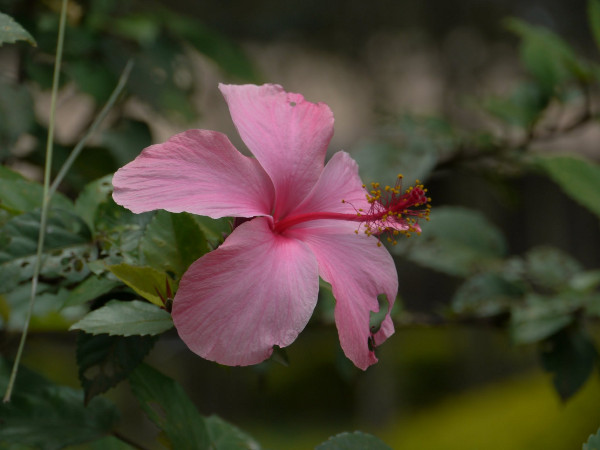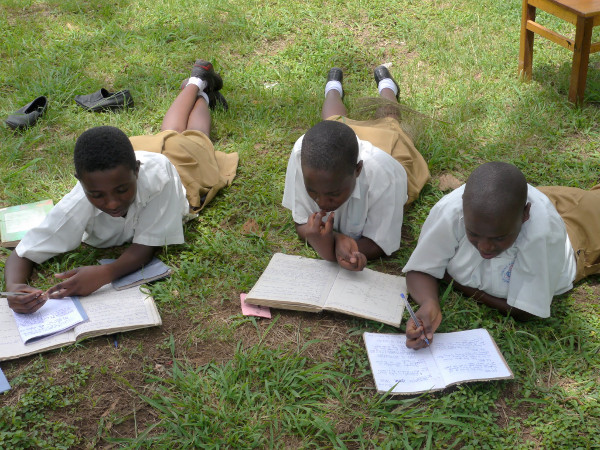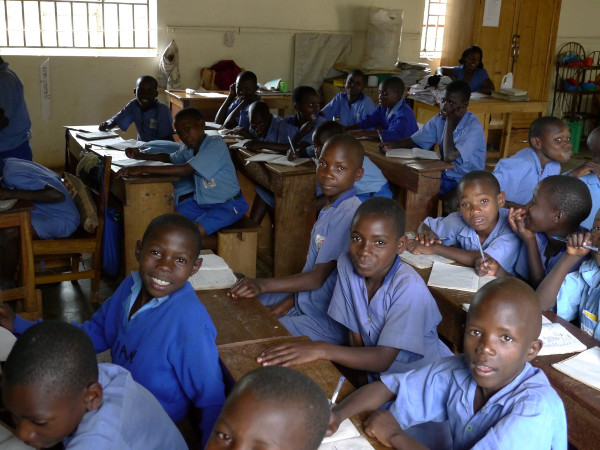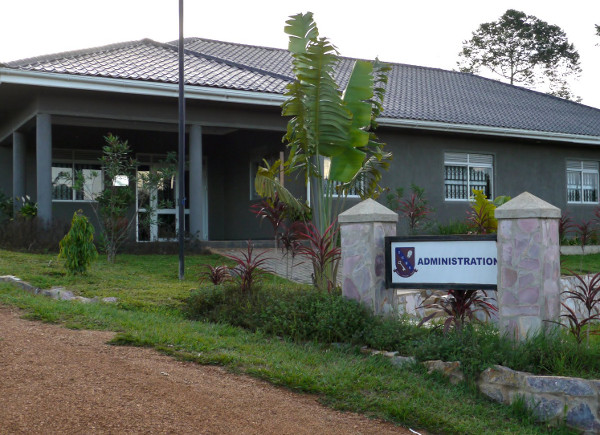Power to Kibaale
Bringing city power to Kibaale has been promised many times. Especially during election time. Now finally a work crew is actually putting up poles and attaching cables. Most work is done by hand, I have seen more than a dozen men in blue overalls pushing and pulling to get a pole up. Still, the transformer isn't there yet and someone mentioned that in a swamp area the wires are missing. We will have to see when it really works. When it does, I am sure the atmosphere in town will radically change. Bright lights instead of oil lamps. Loud TV and radio sounds everywhere. The good side is that carpentry shops can use power tools, the maize grinder will run and welding will be possible. Expect business to flourish! We can see a sample of this in our vocational school, they use power tools there now. Notice the Vim drill in the picture :-).For the project there was supposed to be an extra transformer, but now the wires only go up to the clinic. Apparently the budget wasn't sufficient. Anyway, city power is not reliable, thus the generator and solar system will remain. The wires between the buildings also need to be replaced, they are getting old and were of low quality when they were put in twenty years ago. Maintenance is required to keep the project running.
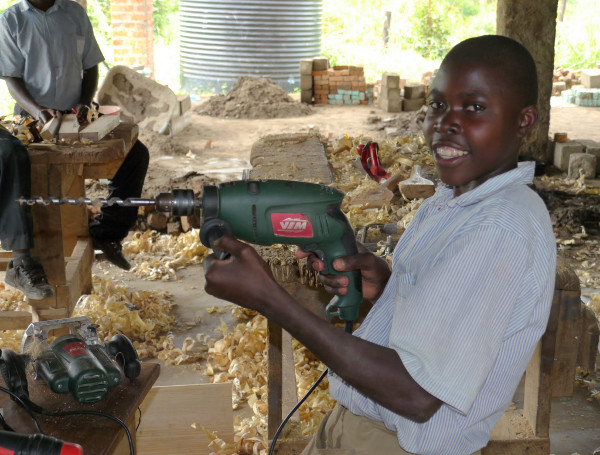
With power a carpenter can do serious work (especially if Vim is the tool!)
